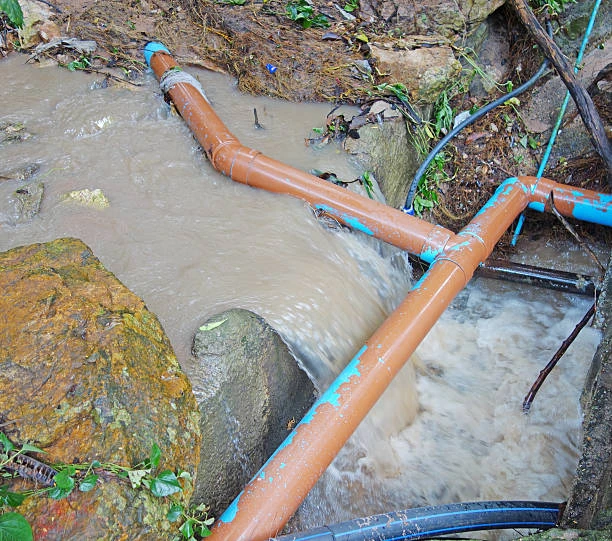Introduction
High-Density Polyethylene HDPE pipe have become a significant player in various industries due to their superior properties, including durability, chemical resistance, and lightweight nature. Recently, the market witnessed a remarkable debut of HDPE pipes, with prices soaring 46% above their initial issue price. This article will explore the factors contributing to this impressive performance, the applications of HDPE pipes, and their role in the market.

Understanding HDPE Pipe
What Are HDPE Pipe?
High-Density Polyethylene pipes are plastic pipes made from high-density polyethylene. Known for their robustness and resistance to a variety of chemicals, HDPE pipes are widely used in water supply, sewage systems, gas distribution, and even in industrial applications. Their lightweight nature and ease of installation make them a preferred choice for many contractors and engineers.
Key Properties of HDPE Pipe
- Durability: HDPE pipes have a long service life, often exceeding 50 years, which makes them a cost-effective choice in the long run.
- Chemical Resistance: They are resistant to a wide range of chemicals, making them suitable for transporting various fluids.
- Lightweight: The lightweight nature of HDPE pipes facilitates easy handling and installation, reducing labor costs.
- Flexibility: HDPE pipes can bend without breaking, making them ideal for applications in areas with shifting soil.
Factors Contributing to the HDPE Pipe Strong Debut
1. HDPE Pipe Increased Demand for Infrastructure
The growing need for infrastructure development, especially in developing countries, has significantly boosted the demand for HDPE pipes. Governments are investing in water supply systems, sewage treatment facilities, and irrigation projects, all of which require reliable piping solutions.
2. HDPE Pipe Environmental Awareness
With a global push towards sustainable practices, the use of HDPE pipes aligns well with environmental goals. HDPE is recyclable and has a lower carbon footprint compared to traditional materials like metal or concrete, making it an attractive option for eco-conscious projects.
3. Cost-Effectiveness
The long-term cost savings associated with HDPE pipes due to their durability and low maintenance requirements have made them increasingly appealing to investors and contractors. This cost-effectiveness has played a significant role in driving up the interest and investment in HDPE pipes.
4. Innovations in Technology
Advancements in manufacturing technologies have improved the quality and performance of HDPE pipes. Innovations such as improved welding techniques and better quality control measures have led to enhanced reliability and performance, making HDPE pipes a top choice for many applications.
5. Favorable Market Conditions
The overall market conditions have been favorable for the HDPE pipe industry. Economic recovery post-pandemic and an upsurge in construction activities have contributed to a thriving environment for HDPE pipes.
Applications of HDPE Pipe
1. HDPE Pipe Water Supply Systems
HDPE pipes are widely used in municipal water supply systems. Their resistance to corrosion and scaling ensures that water remains clean and safe for consumption. Additionally, their flexibility allows for easier installation in various terrains.
2. Sewage and Drainage Systems
HDPE pipes are an excellent choice for sewage and drainage systems due to their ability to withstand harsh environmental conditions. They are less prone to blockages and leaks, making them reliable for transporting wastewater.
3. Gas Distribution
In gas distribution networks, HDPE pipes are favored for their ability to withstand pressure and resist corrosion. Their lightweight nature makes them easy to install, reducing labor costs and time.
4. Industrial Applications
Various industries, including chemical processing and mining, utilize HDPE pipes for transporting fluids and gases. Their chemical resistance and durability make them suitable for handling aggressive substances.
5. Agricultural Applications
In agriculture, HDPE pipes are use for irrigation and drainage systems. Their flexibility allows for efficient water distribution, while their resistance to chemicals ensures the safety of transported fluids.
The Future of HDPE Pipe
HDPE Pipe Market Growth Projections
The future looks bright for HDPE pipes, with projections indicating robust growth in the coming years. The increasing emphasis on infrastructure development and sustainability will likely drive demand further.
Technological Advancements
Ongoing research and development in HDPE manufacturing techniques promise to enhance the performance and efficiency of these pipes. Innovations in pipe design, production processes, and materials will continue to improve the viability of HDPE pipes for various applications.
Regulatory Support
Governments and regulatory bodies are expected to implement policies that encourage the use of sustainable materials, further boosting the HDPE pipe market. This regulatory support will likely contribute to increased investments and growth in the industry.
Conclusion
The strong debut of HDPE pipes, marked by a 46% increase against their issue price, reflects the growing recognition of their benefits and applications across various industries. As demand for sustainable and efficient piping solutions continues to rise, HDPE pipes are well-positione to play a crucial role in infrastructure development and environmental sustainability. With favorable market conditions, technological advancements, and increasing awareness of their advantages, the future of HDPE pipes looks promising.
Frequently Asked Questions HDPE Pipe (FAQs)
1. What factors contribute to the rising demand for HDPE pipes?
The rising demand is drive by infrastructure development, environmental awareness, cost-effectiveness, and advancements in manufacturing technology.
2. How long do HDPE pipe typically last?
HDPE pipes can have a service life of over 50 years with proper installation and maintenance.
3. Are HDPE pipe resistant to chemicals?
Yes, HDPE pipes are resistant to a wide range of chemicals, making them suitable for various applications.
4. Can HDPE pipe be recycle?
Yes, HDPE pipes are recyclable, which contributes to their appeal as a sustainable piping solution.
5. What are the main applications of HDPE pipe?
HDPE pipes are primarily use in water supply systems, sewage and drainage systems, gas distribution, industrial applications, and agriculture.